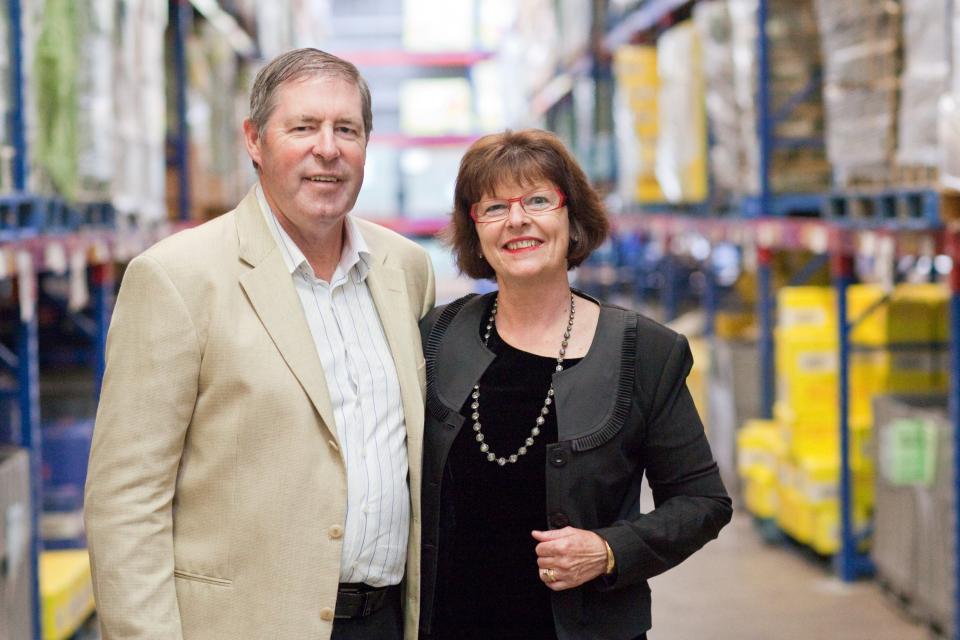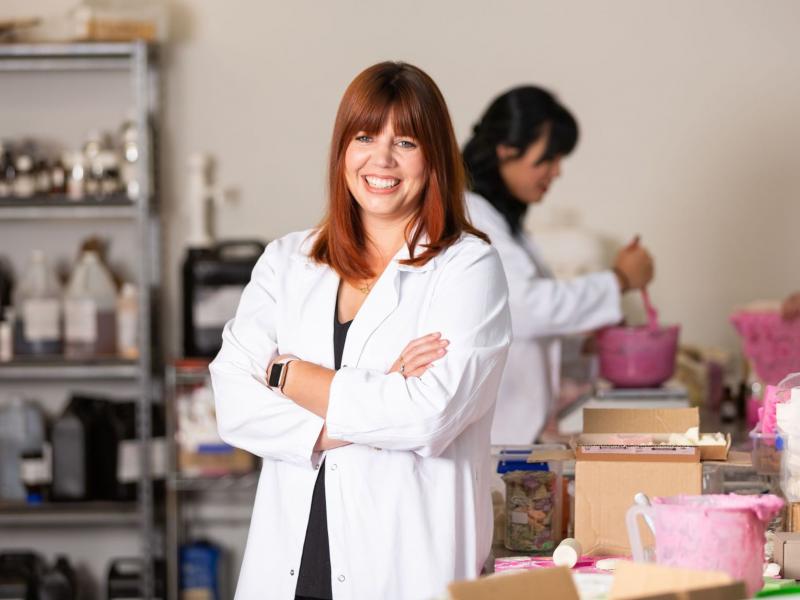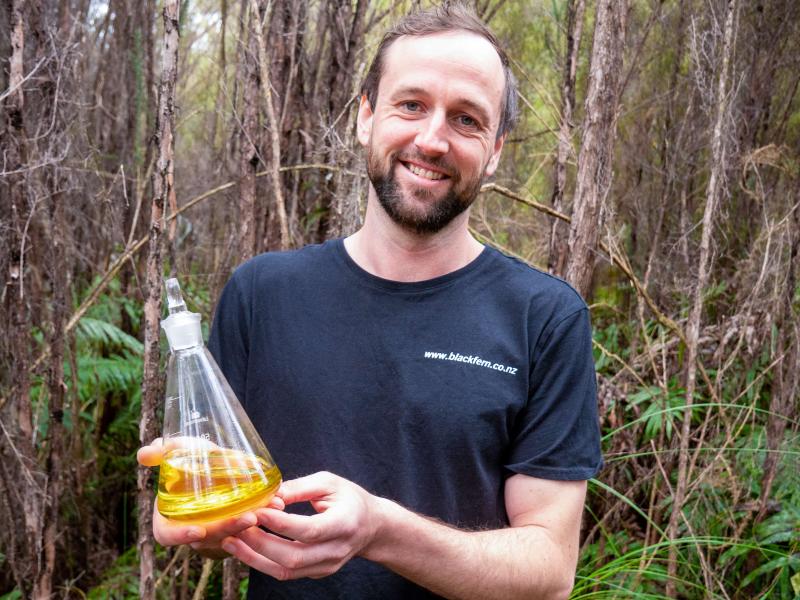Profile Foods came from humble beginnings in a Hamilton garage, writes Catherine Beard. Today its products are being welcomed in markets throughout Southeast Asia.
Most Kiwi’s will be familiar with Alison’s Pantry bulk foods – usually found in the handy scoop bins at your local supermarket. Named after one of the nation’s best loved cooks, Alison Holst, the nuts, seeds, grains and dried fruits represent good honest Kiwi wholesomeness.
But it may surprise you to know that this iconic product is also a hit overseas, in very different markets.
Prolife Foods was born in 1984 in the garage of Bernie and Kaye Crosby’s rented Hamilton home. In its infancy, dried fruit and nuts were delivered to health food shops in the boot of the Crosbys’ Triumph 2000.
Jump forward more than three decades, and with a turnover of over $300 million, this innovative food business has grown to include several brands as well as Alison’s Pantry, including Mother Earth, Haddrell’s of Cambridge and Donovans Chocolates.
Mike Sheeran, GM International of Prolife Foods, explains why Alison’s Pantry products were chosen for export.
“The self-selection category is really on-trend with health and wellbeing globally, not just in New Zealand. Plus it’s our core competency. We’ve done it for a long time in New Zealand and have a great relationship with Foodstuffs here.
“Australia was the most obvious test market, and developing a successful relationship with Coles there gave us the confidence and impetus to go further afield.”
So after just a couple of years in the international playing field beyond Australia, what has Mike learnt?
“We’re focusing on setting up our Southeast Asia strategy and have found success in Singapore,” he says. “We’ve started a partnership there with Hong Kong Dairy Farms, which owns supermarkets throughout Southeast Asia. It’s a category that really differentiates retailers’ fresh food proposition; it’s innovative and stands out.
“One of the key learnings for me is that you must have a very strong domestic business before moving to exporting. You need a lot of capability in your infrastructure – from manufacturing supply chains to brand marketing, finance support and HR.
“With our self-selection model, we employ people in overseas markets that we have to train, and there can be language and cultural barriers.”
If you have a strong consumer proposition with globally understood products, you can be strong anywhere, explains Mike. The lesson is taking that consumer proposition from being successful in one country, and adapting that commercial model to suit other countries’ infrastructure and retail.
“The Singapore market, for example, has a very different retail footprint – the stores are a lot smaller and it’s a lot more fragmented.”
One of the keys to Prolife Foods’ international success, according to Mike, is trialing things – then redefining the consumer proposition over time to suit the local market. This worked well with Alison’s Pantry in Cold Storage supermarkets in Singapore, where Prolife Foods was operating a store within a store.
Prolife Foods has ambitious growth aspirations, and strategic retailer partnerships will be key.
“We’ve been in this market a long time and have plenty of experience and passion for it,” says Mike. “Also, we invest heavily in understanding how to grow and develop this category, and we always continue to innovate. I believe we can really lead the market globally.”
To develop strong export business, his advice is to make sure your company:
a) Is committed to the long-term journey, understanding it’s a slow burn,
b) Has a strong domestic base, infrastructure and capability,
c) Is committed from an investment and resourcing perspective,
d) Has strong leadership across the business, developing the ‘new’ in unchartered waters.
Catherine Beard is executive director of ExportNZ, which assists exporters throughout New Zealand (www.exportnz.org.nz). This article also appears in the October 2018 issue of NZBusiness.
Photo: Prolife Foods founders Bernie and Kaye Crosby.





